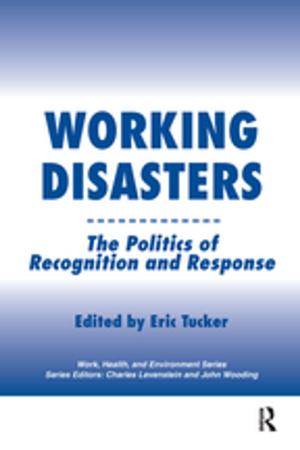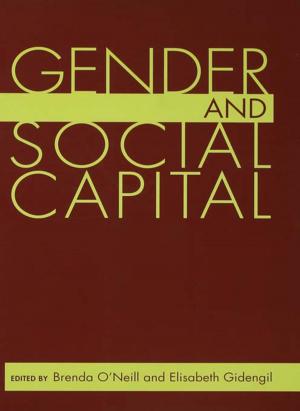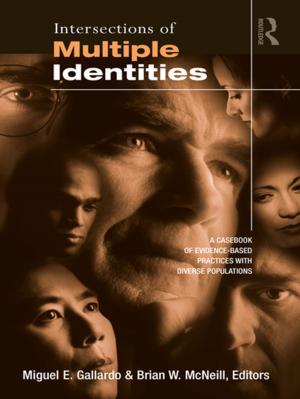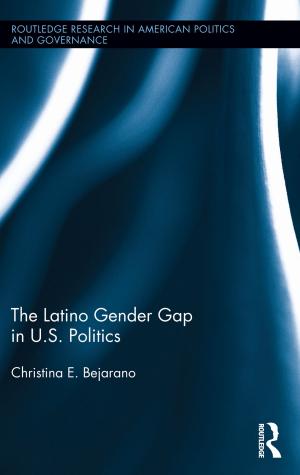Technology, Crime and Justice
The Question Concerning Technomia
Nonfiction, Social & Cultural Studies, Social Science, Crimes & Criminals, Criminology| Author: | Michael McGuire | ISBN: | 9781136464119 |
| Publisher: | Taylor and Francis | Publication: | June 14, 2012 |
| Imprint: | Willan | Language: | English |
| Author: | Michael McGuire |
| ISBN: | 9781136464119 |
| Publisher: | Taylor and Francis |
| Publication: | June 14, 2012 |
| Imprint: | Willan |
| Language: | English |
As technology comes to characterize our world in ever more comprehensive ways there are increasing questions about how the 'rights' and 'wrongs' of technological use can be adequately categorized. To date, the scope of such questions have been limited – focused upon specific technologies such as the internet, or bio-technology with little sense of any social or historical continuities in the way technology in general has been regulated.
In this book, for the first time, the 'question of technology' and its relation to criminal justice is approached as a whole. Technology, Crime and Justice analyzes a range of technologies, (including information, communications, nuclear, biological, transport and weapons technologies, amongst many others) in order to pose three interrelated questions about their affects upon criminal justice and criminal opportunity:
-
to what extent can they really be said to provide new criminal opportunity or to enhance existing ones?
what are the key characteristics of the ways in which such technologies have been regulated?
how does technology itself serve as a regulatory force – both in crime control and social control more widely?
Technology, Crime and Justice considers the implications of contemporary technology for the practice of criminal justice and relates them to key historical precedents in the way technology has been interpreted and controlled. It outlines a new ‘social’ way of thinking about technology – in terms of its affects upon our bodies and what they can do, most obviously the ways in which social life and our ability to causally interact with the world is ‘extended’ in various ways. It poses the question – could anything like a ‘Technomia’ of technology be identified – a recognizable set of principles and sanctions which govern the way that it is produced and used, principles also consistent with our sense of justice?
This book provides a key resource for students and scholars of both criminology and technology studies.
As technology comes to characterize our world in ever more comprehensive ways there are increasing questions about how the 'rights' and 'wrongs' of technological use can be adequately categorized. To date, the scope of such questions have been limited – focused upon specific technologies such as the internet, or bio-technology with little sense of any social or historical continuities in the way technology in general has been regulated.
In this book, for the first time, the 'question of technology' and its relation to criminal justice is approached as a whole. Technology, Crime and Justice analyzes a range of technologies, (including information, communications, nuclear, biological, transport and weapons technologies, amongst many others) in order to pose three interrelated questions about their affects upon criminal justice and criminal opportunity:
-
to what extent can they really be said to provide new criminal opportunity or to enhance existing ones?
what are the key characteristics of the ways in which such technologies have been regulated?
how does technology itself serve as a regulatory force – both in crime control and social control more widely?
Technology, Crime and Justice considers the implications of contemporary technology for the practice of criminal justice and relates them to key historical precedents in the way technology has been interpreted and controlled. It outlines a new ‘social’ way of thinking about technology – in terms of its affects upon our bodies and what they can do, most obviously the ways in which social life and our ability to causally interact with the world is ‘extended’ in various ways. It poses the question – could anything like a ‘Technomia’ of technology be identified – a recognizable set of principles and sanctions which govern the way that it is produced and used, principles also consistent with our sense of justice?
This book provides a key resource for students and scholars of both criminology and technology studies.















